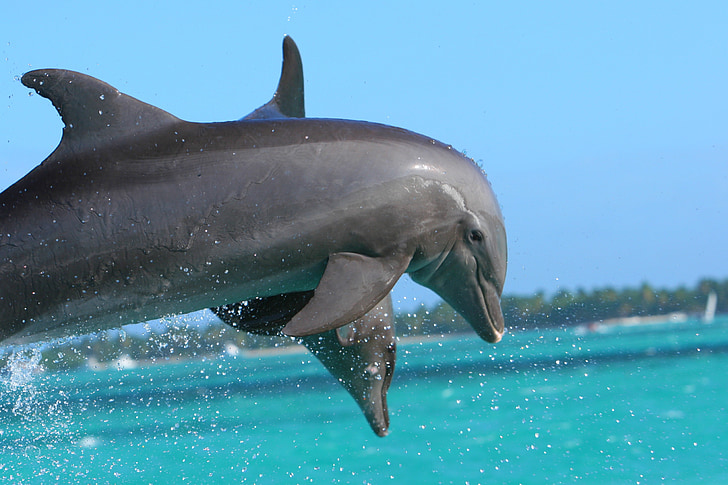Dolphins are among the most intelligent creatures in the animal kingdom. Known for their playful nature, problem-solving skills, and social behaviors, they have fascinated researchers for decades. But what makes dolphins so smart? This article explores the remarkable cognitive abilities of dolphins, including their problem-solving skills, communication systems, and emotional intelligence.
1. Large and Complex Brains
Dolphins have large brains relative to their body size, with a high encephalization quotient (EQ), which is often linked to intelligence. Their brains possess complex folds, similar to those of humans, which increase surface area and enhance processing power. This structure enables advanced problem-solving and social behaviors.
2. Problem-Solving Skills
Dolphins have demonstrated the ability to solve problems in controlled environments. For example, researchers have observed dolphins figuring out how to retrieve food from complex contraptions. In the wild, they display similar ingenuity by using tools, such as sponges, to protect their snouts while foraging on the seafloor.
3. Complex Communication Systems
Dolphins use a range of clicks, whistles, and body movements to communicate. Each dolphin has a unique “signature whistle,” akin to a name, that allows them to identify one another. This level of individuality in communication suggests a sophisticated understanding of identity and relationships.
4. Social Intelligence
Dolphins live in pods, which are highly organized social groups. Within these pods, they form strong bonds and cooperate during hunting or protecting themselves from predators. Their ability to work together and form alliances reflects advanced social intelligence and emotional awareness.

5. Mirror Self-Recognition
Mirror self-recognition is considered a hallmark of self-awareness. Dolphins are one of the few species, along with humans, great apes, and elephants, that can recognize themselves in a mirror. This indicates they have a sense of self, a trait linked to higher cognitive functions.
6. Empathy and Altruism
Dolphins exhibit empathy and altruistic behaviors. They have been known to help injured or distressed dolphins and even assist humans in danger, such as saving swimmers from sharks. These actions suggest a deep understanding of others’ emotions and situations.
7. Learning Through Imitation
Dolphins are excellent imitators. They can mimic human actions, other dolphins, and even sounds. This ability to learn through observation and imitation is a sign of advanced intelligence, as it involves understanding and replicating actions with purpose.
8. Tool Use
Some dolphin species, such as bottlenose dolphins, use tools to aid their hunting. For example, dolphins in Shark Bay, Australia, use marine sponges to cover their snouts while searching for prey on rough surfaces. This behavior shows creativity and an understanding of tools’ practical benefits.
9. Play and Creativity
Dolphins engage in play, an activity linked to intelligence. They have been observed surfing waves, playing with seaweed, and even blowing bubble rings underwater for fun. Play is essential for learning and demonstrates cognitive flexibility and curiosity.
10. Memory and Recognition
Dolphins have impressive memory capabilities. Studies show they can recognize the signature whistles of other dolphins they haven’t seen for over 20 years. This ability highlights their strong memory and the importance of social connections in their lives.
The Science Behind Dolphin Intelligence
Research into dolphin intelligence is ongoing, with scientists continuously uncovering new insights. Studies suggest their cognitive abilities may have evolved due to their complex social structures and the challenges of their marine environment. Dolphins’ intelligence also raises ethical questions about how we treat them in captivity and the wild.
Implications for Conservation
Understanding dolphin intelligence underscores the need to protect these remarkable creatures. Their advanced cognitive and emotional abilities make them vulnerable to stress, habitat destruction, and bycatch. Conserving their natural habitats and minimizing human impact are essential steps to safeguard their well-being.
Final Thoughts
Dolphins’ intelligence is one of their most fascinating traits. From their problem-solving skills to their social and emotional awareness, they continue to inspire researchers and nature enthusiasts alike. Exploring and understanding their cognitive abilities not only deepens our connection to these marine mammals but also emphasizes the need to ensure their survival in a changing world.
